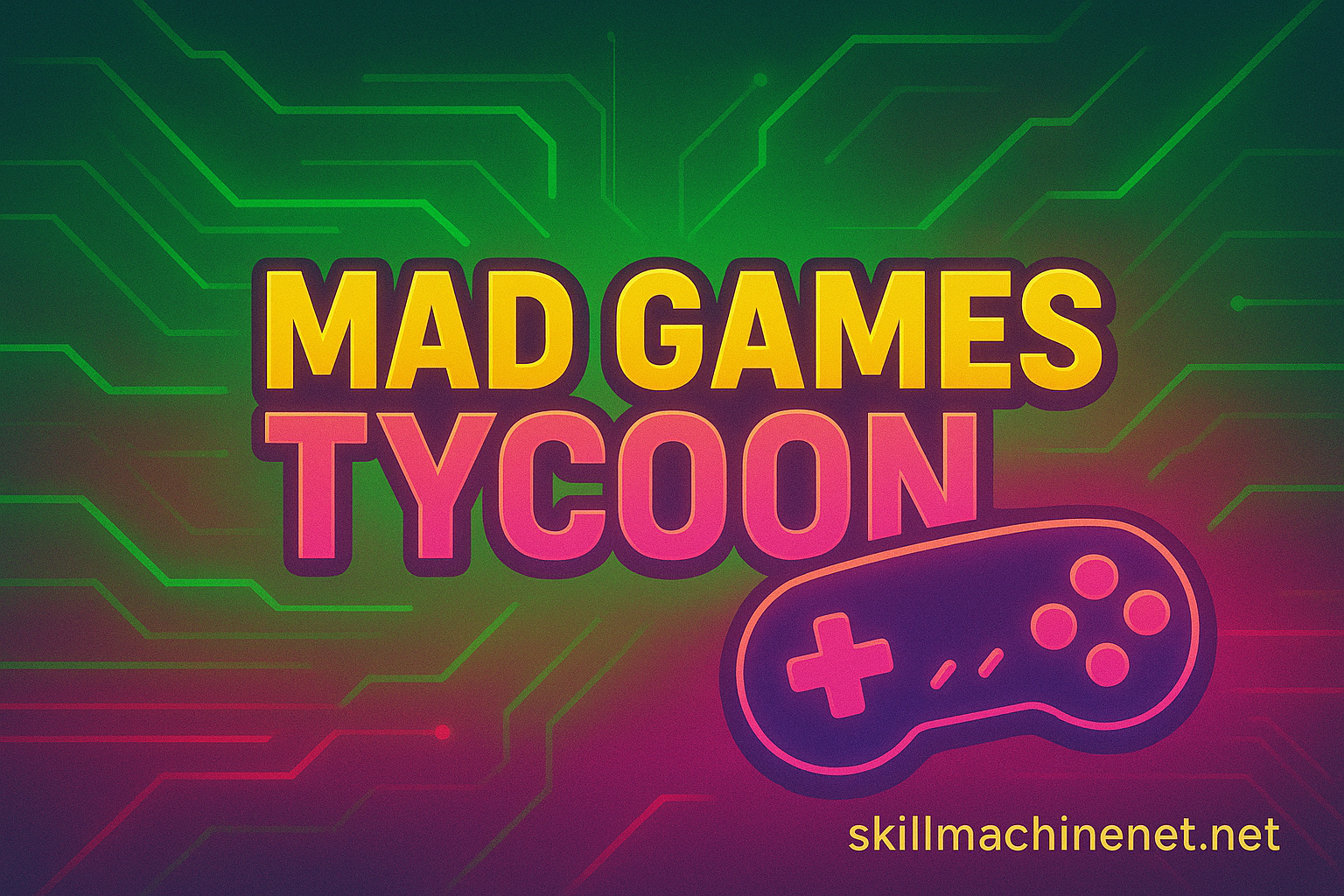Mad Games Tycoon is a deep simulation game that lets you build your own game development studio from scratch. Every decision, from staff hiring to engine development, shapes the outcome of your company. For beginners, the wide range of options can feel overwhelming, but with the right guidance, you can go from releasing tiny arcade titles to producing global bestsellers.
This ultimate guide will show you step by step how to master Mad Games Tycoon, whether you are a complete newcomer or looking to polish your pro skills.
Read also: All Pokémon Scarlet Exclusives & How to Get Them
What Should You Focus on When Starting Out?
When you first begin, it is best to keep things simple. Choosing easy genres such as arcade or puzzle allows you to get comfortable with the mechanics without taking huge risks. These genres require fewer features and resources, making them ideal for beginners.
Money management is critical in the early stages. Avoid taking out big loans unless absolutely necessary because repaying them can put your studio under financial stress. Focus on creating a few small but polished games instead of attempting large projects too soon. Each early release is more about learning and earning steady income than chasing record-breaking sales.
How Do You Organize a Productive Studio Layout?
Your studio’s layout affects how efficiently your staff works. Keep related rooms close together, like placing research rooms near development rooms so employees waste less time moving around. Add bathrooms, lounges, and staff areas nearby to maintain morale.
Do not expand your office too quickly. Small, functional rooms are enough in the beginning, and you can expand as your team grows. Decorations and comfort items such as plants, heaters, or entertainment may seem minor, but they improve staff motivation and productivity over time.
Why Is Research and Engine Development So Important?
Research is one of the most powerful tools in Mad Games Tycoon. Unlocking new features, better graphics, and additional platforms keeps your games competitive. Studios that ignore research quickly fall behind.
Developing your own engine is another milestone. Once you have enough researched features, build an in-house engine tailored to your main genres. This not only increases the quality of your games but also gives you the option to license your engine to other studios for extra income. Be selective about which features you include, focusing on those that actually matter for your chosen genres. Upgrading your engine should also be done strategically to balance costs with benefits.
How Do You Create Games That Score Well?
To get good reviews, you need to pay attention to your game’s sliders. Each genre in Mad Games Tycoon has an ideal balance between gameplay, graphics, sound, and technology. Learning these balances is essential because even a well-funded game can fail if the sliders are poorly set.
Start with small games that have only a few features, then gradually expand into larger projects as you gain confidence. Supporting multiple platforms and localizing into more languages can greatly increase sales later in the game. At first, it may be too expensive, but eventually, this step helps you reach new markets and grow your fan base.
How Do You Manage and Train Staff Effectively?
Your staff is the core of your studio’s success. Always hire employees whose strengths match the genres and features you are working on. For example, strong design skills are valuable for RPGs, while high technology skills help in simulation or strategy games.
Use training rooms to steadily improve your employees’ abilities. This investment pays off because highly trained staff members produce better games more quickly. Keep staff morale high by balancing workloads and ensuring your office has enough amenities. Happy employees are far more productive than stressed or overworked ones.
How Do Marketing and Publishers Affect Success?
Even if you make a great game, it will not sell without proper marketing. Start with small campaigns early on to build hype, then move to larger campaigns as your studio grows. Timing releases around conventions can also give you extra visibility and sales boosts.
Publisher deals are a useful way to reduce risks in the early game. By partnering with a publisher, you gain reputation and guaranteed sales, even if the contract cuts into your profits. As your studio becomes stronger, you can move away from publishers and release games independently for maximum earnings.
How Can You Get Consistently High Review Scores?
High review scores are the difference between an average game and a hit. To consistently achieve them, always match your staff’s strengths with the genre and features of your games. Do not release games too quickly take the time to polish, fix bugs, and balance your features.
Market trends also play an important role. If a certain genre is popular, focusing your efforts on that genre gives you a higher chance of success. On the other hand, releasing a game in an unpopular genre can hurt sales even if the quality is good.
What Are the Most Common Mistakes Beginners Make?
The biggest mistake is expanding too quickly. Many new players hire too many staff, build oversized rooms, or take loans they cannot repay. These choices put unnecessary pressure on the studio.
Another common error is ignoring research. Falling behind in technology means your games will never match competitors in quality. Finally, adding too many mismatched features to a game usually results in lower review scores. Remember, more is not always better quality and balance matter most.
What Advanced Tips Can Help You Play Like a Pro?
Once you understand the basics, you can start building like a professional. Create multiple engines specialized for different genres so you can release high-quality games across markets. Keep a close eye on trends and adjust your development strategy quickly to stay ahead.
Small details also separate beginners from pros. Comfortable office layouts, well-trained staff, and clever use of marketing all add up to better results. Reinvesting profits wisely into research, staff development, and upgraded engines ensures long-term dominance.
Conclusion
Mad Games Tycoon is about balancing every part of game development. From careful financial planning and smart research to polished releases and strong marketing, every choice matters. By starting small, focusing on staff training, building strong engines, and paying attention to market trends, you can transform your studio from a humble beginning into an industry leader.
With patience and strategy, mastering Mad Games Tycoon becomes not just possible but incredibly rewarding.
FAQs
Q1: What genre should beginners choose in Mad Games Tycoon?
Arcade and puzzle are the best starting genres because they are low-cost and easy to manage.
Q2: Is it worth taking loans early in the game?
Loans can be risky, so only take them if absolutely necessary to keep your studio afloat.
Q3: How important is research in the game?
Research is vital for unlocking new features, platforms, and engines that keep your games competitive.
Q4: When should I build my first engine?
Create your first engine after unlocking enough useful features for your preferred genres.
Q5: What is the best way to achieve high review scores?
Match features with staff skills, use the correct slider settings, polish thoroughly, and avoid rushing your releases.



